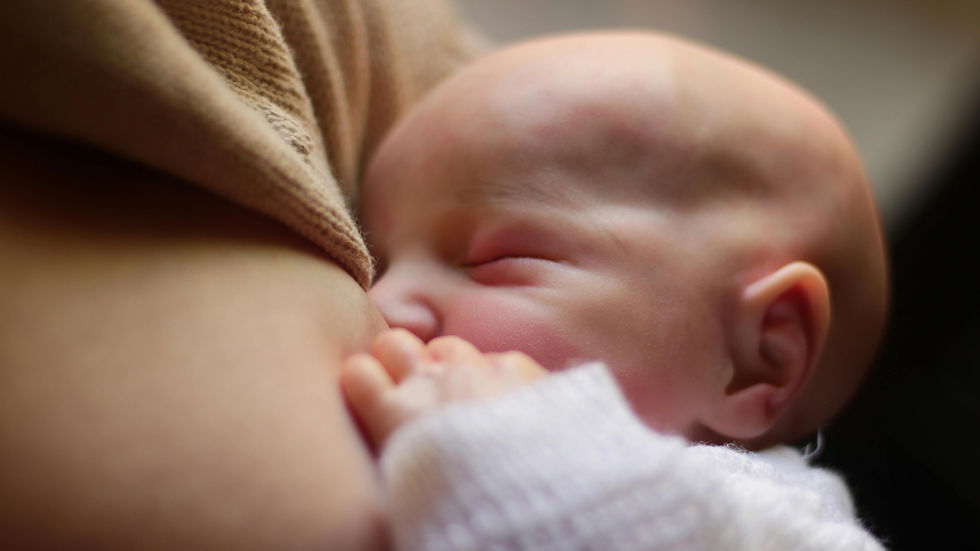Common Myths About Miscarriage and Infant Loss (and the Truths Behind Them)
- havenplacedoulas
- Oct 3, 2025
- 3 min read
Updated: Dec 17, 2025

You don’t forget the moment you realize your baby is gone.
The silence in the ultrasound room.
The way time suddenly feels too loud, too heavy.
The ache of going home with empty arms when your heart was ready to hold so much more.
And then, on top of the grief, you’re met with whispers, half-truths, and well-meaning but deeply painful comments.
“You can try again.”
“At least it happened early.”
“Something must have been wrong with you.”
If you’ve ever heard those words, you know how they sting. That’s why it’s so important to name the myths around miscarriage and infant loss, because the stories people tell can either heal or harm. And you deserve the truth.
Myth 1: Miscarriage is rare
The truth: Miscarriage is far more common than people realize. Research shows that about 10–20% of known pregnancies end in miscarriage. Knowing this doesn’t make the loss less painful, but it does remind you: you are not an exception, and you are not alone
Myth 2: It’s always the mother’s fault
The truth: Miscarriage and infant loss almost never happen because of something you did or didn’t do. Most losses are due to genetic, medical, or developmental reasons far outside your control. Blame has no place here.
Myth 3: You should "move on" quickly
The truth: Grief doesn’t follow a timeline. Whether the loss happened weeks ago or years ago, the love you carry is real, and so is the ache. Healing is not about forgetting, it’s about learning how to live with the love and the loss together.
Myth 4: Pregnancy loss only happens early on
The truth: Miscarriage, stillbirth, and infant loss can happen at any stage of pregnancy or even after birth. Loss later in pregnancy or shortly after delivery is devastating in unique ways, often layered with trauma from labor or delivery. All forms of loss matter.
Myth 5: Talking about miscarriage makes it worse
The truth: Silence is what makes grief heavier. Many parents find healing in sharing their story, joining support groups, or simply having someone listen without judgment. Naming your loss honors your baby’s place in your life.
Myth 6: Pregnancy after loss erases the pain
The truth: A new pregnancy can bring joy, but it doesn’t undo the grief of the baby who came before. Both love and loss can live side by side, and both deserve space in your heart.
Why Breaking Miscarriage and Infant Loss Myths Matters
Every parent who has walked this road knows the ache of feeling unseen. Busting these myths matters because they strip away the shame and silence that often surround pregnancy loss. They make room for truth, compassion, and healing.
This is also why Pregnancy and Infant Loss Awareness Month exists each October. It’s a time to break the silence, to name the babies we carry in our hearts, and to give grieving families the compassion they deserve. Awareness reminds parents that their love, their grief, and their stories matter.
Resources for Parents Experiencing Miscarriage and Infant Loss
If you’re walking through this right now, these organizations and tools can help you feel less alone:
Share Pregnancy & Infant Loss Support (nationalshare.org)
Offers support groups, remembrance events, and resources for grieving parents.
MISS Foundation (missfoundation.org)
Provides counseling, peer support, and advocacy for families after the death of a child.
Pregnancy After Loss Support (PALS) (pregnancyafterlosssupport.org)
Encouragement and resources for parents navigating pregnancy after loss.
Return to Zero: HOPE (rtzhope.org)
Focused on creating healing spaces for parents through retreats, groups, and online resources.
Finding Support After Loss
The first weeks after miscarriage or infant loss can feel isolating and overwhelming. Having the right kind of care a listening ear, a steady presence, someone who understands,can make the road a little less heavy. That’s where postpartum support comes in.
At Haven Place Doulas, we walk with families through pregnancy, birth, postpartum, and the tender realities of loss. If you’re in Boston or Massachusetts, know that you don’t have to go through this alone. Support is here, and your story matters.




Comments